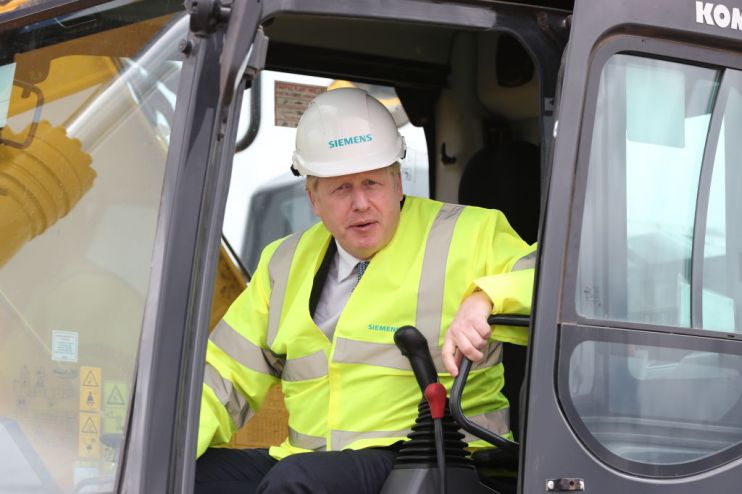Build, build, build needs the right foundations

If you’re a British Prime Minister, betting your premiership on infrastructure delivery is what Sir Humphrey might call a “brave” move. Recent history suggests that this country is, frankly, terrible at infrastructure.
Barring a few beacons which shine very bright – the 2012 Olympics, the new Thames Gateway port, the second Severn river crossing – the post war years are littered with examples of projects which never quite made it from theory to reality without either delay, cost over-runs or just simply being scrapped.
Read more: The City View podcast with Modwenna Rees-Mogg
In London we’re talking about Crossrail 2 but we still don’t have Crossrail. Britain doesn’t have a viable aviation strategy. We can’t deliver new roads. HS2 is going ahead, we think, but the cost remains largely a mystery. The railway franchise system is a mess. What our future energy system looks like remains up for debate in the absence of the Government’s long-awaited Energy White Paper. We lack a forward-looking water and wastewater strategy. And now the Huawei row places a big question mark over our future digital infrastructure.
This isn’t an exclusively British problem and delivering big projects is massively difficult in fully fledged democracies – to paraphrase, edicts from central government rarely survive contact with the enemy, in the form of everything from local MPs to residents groups. The five-year parliamentary pattern also militates against long-term planning; meaning if you want to get something big done you really need a parliamentary consensus with the main opposition party.
Nonetheless, it’s in this context that Boris Johnson has pledged to right at least thirty years of structural failure. How might he get on?
One expects we will at least see some quick wins in the “red wall” in fairly short order because new Conservative MPs in northern seats will be a powerful lobby. Expect to see examples of the new Brownfield Land Fund being rolled out in the northern city regions and to hear soundbites from Tory MPs about new homes delivery. And as September approaches we will hear more about the major new schools rebuilding programme, whether parents have been able to send their children back to school or not. Expect to see strong financial backing for big projects promoted by Andy Street in the West Midlands and Ben Houchen in Tees Valley as the delayed combined authorities elections get closer, as well as a focus on areas such as Cambridgeshire and Peterborough ahead of metro mayor elections there.
Ultimately though, all this is just scratching the surface. If you promise an infrastructure revolution, then it’s major projects which you’ll be judged on. Actually delivering these projects means taking big and uncomfortable political calls.
First, it means making the case for infrastructure in personally relevant terms. HS2 still suffers as a project because of the decision to prioritise the benefits of getting somewhere more quickly over the real benefit of the scheme which has always been about improving capacity. It’s the same with the Road Investment Strategy. The first thought should always be: how can we get the right passengers on the right routes? Building new roads is controversial, but particularly outside of London and our other big cities, new road infrastructure can really improve people’s lives – helping parents on the school run and better connecting people to businesses.
Second, it means being willing to face down siren calls in a constituency and pressing on. Heated disputes over big projects can feel damaging to electoral prospects, but the reality is that come election time people vote on lots of different issues. Recent polling by Portland has demonstrated that there is strong public backing for big new infrastructure such as new nuclear power plants, new roads and even HS2.
And third, it means a joined-up approach and commitment to rigour and quality in project oversight. One of the things the Blair government got right was the reservation of major projects for handling by an Infrastructure Commission. Do we need a similar approach now?
Mixed messages cripple big projects. In February the Government gave its full backing to HS2. But only last week the Infrastructure and Projects Authority said in its annual report ‘There are major issues with project definition, schedule, budget, quality and/or benefits delivery, which at this stage do not appear to be manageable or resolvable.’
In many ways, the reason governments have become so bad at delivering new infrastructure is a failure to take people with it on the delivery journey. To change this, “build back better, greener, faster” needs to translate into owning big projects from start to finish. It requires real leadership in communicating exactly how a project will improve people’s lives. And it means consistently backing delivery teams, giving them confidence to make good decisions all the way through the process. Without this backing, big projects will continue to fail.